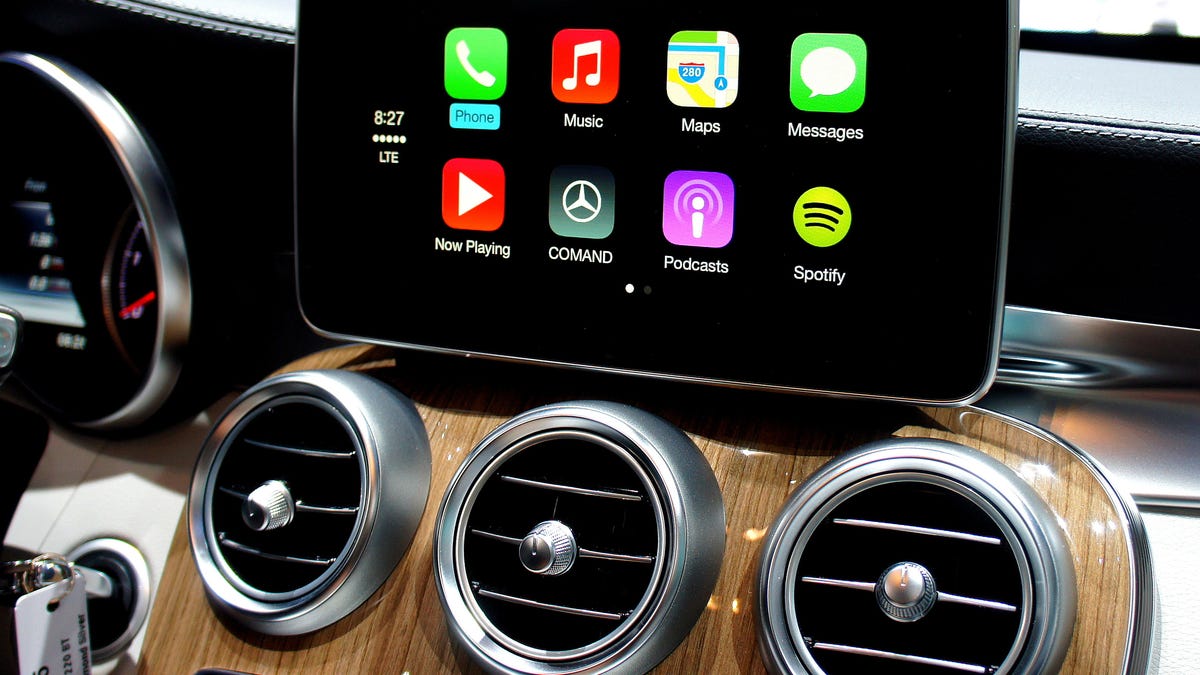Apple won't own the dashboard with CarPlay
CarPlay, formerly known as iOS in the Car, got its public airing at the Geneva auto show last week, but it doesn't spell the end for automakers own dashboard infotainment systems.

At the 2014 Geneva auto show, we got the first hands-on demonstrations of CarPlay, the feature of iOS7 that Apple announced last year as iOS in the Car. From comments on the Internet, you might think Apple software has now taken over car dashboards, leaving Android users the choice to convert or walk.
It may seem unlikely, but many Internet commenters are wrong, at least about CarPlay. I was one of the first journalists to get a demonstration of the system at the show, and I was impressed.
Click here to read my take on the CarPlay demonstration.
Rather than a revolution in dashboard infotainment, what I saw in CarPlay was an evolution of iOS music library integration in cars. For the last 10 years, cars have increasingly featured USB ports that let you plug in an iPod, iPhone, or iPad with its white cable, and control music playback using the car's own touch screen LCD or dashboard controls. With this integration, you can browse music by artist, album, genre, and track, select something, and play it.
CarPlay takes a step forward from there. You still have to plug the iOS device into the car's USB port, but then the CarPlay interface takes over the car's LCD, with all processing running on the device. Much like the iOS interface, CarPlay shows app icons, although in a bigger format. For the Geneva demonstration, CarPlay gave me the choices of Apple Maps, iTunes music, and iOS phone and text messaging. The only third party apps were iHeartRadio, Stitcher, Beats Music, and Spotify. I'm sure the folks at Pandora are feeling snubbed.
Additional apps will come, but they will go through far more scrutiny than the great variety found in the iTunes app store. Apple will be the primary gatekeeper of apps approved for CarPlay, but automakers will definitely need some say, and probably veto power, as they will be in the sights of any lawsuits over distracting features in the car.
Worth plugging in?
Given the need to plug the iOS device into the car, I don't see drivers turning to CarPlay for casual trips. The more likely scenario is that, on a trip to the grocery store for example, most drivers might listen to music over a Bluetooth connection or not bother with any phone functions at all.
Commuters will likely appreciate the text messaging features of CarPlay, and there is certainly room for voice-oriented social media apps in this context. An app with a stronger focus on traffic congestion than Apple Maps would also be a welcome addition.
CarPlay will certainly come in handy for trips involving navigation, as long as the route doesn't cover a lot of data-less ground. Take a camping trip to the mountains and most of CarPlay's apps will be useless.
In fact, navigation tends to be most crucial in areas which lack wireless data connections. In those driving situations, automaker-installed navigation systems with stored maps will continue to prove their worth.
The type of car will likely play a big part in how often CarPlay sees use. In an economy car, such as the Honda Civic, a buyer may forgo the navigation option in favor of CarPlay. However, in a luxury vehicle like the Mercedes-Benz S-Class, which comes standard with excellent navigation, would a driver bother to plug in her phone and fire up the CarPlay interface?
A future version of CarPlay will work over Wi-Fi, which should give it a big boost in usage, but will also require the automakers to install new hardware to support this type of wireless connection, so adoption won't be quick.
Not a competition
Coming up on CarPlay's heels is Automotive Link from Google's Open Automotive Alliance. The Open Automotive Alliance was only announced a few months ago, but it will likely offer similar functionality as CarPlay, except for Android. Then there is MirrorLink, an open standards means of mirroring any mobile OS on a car's dashboard.
Click here to read more about these different mirroring schemes.
From an automaker's point of view, CarPlay, Automotive Link, and MirrorLink are not competitors. These three children might be squabbling, but their automaker parents are packing all of them into the car for the ride to grandma's house. The technology is not exclusive, and automakers will want to accommodate the rabid Apple fanboy as much as the fanatical Android partisan. A sale is a sale, no matter in which camp the buyer lives.
And along with these connectivity features, cars will continue to include native software to support Bluetooth hands-free phone calls and music streaming, stereo control, car maintenance and fuel economy information, and the host of other features that must always be available to the driver, with or without a phone.

